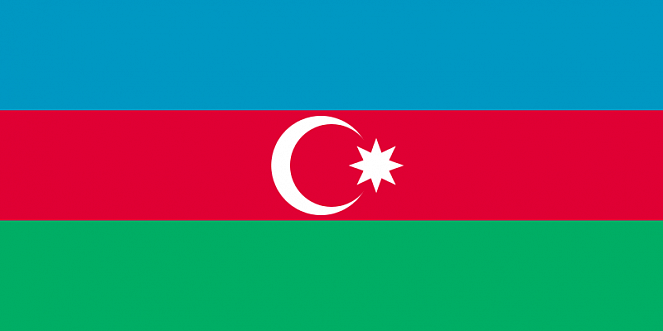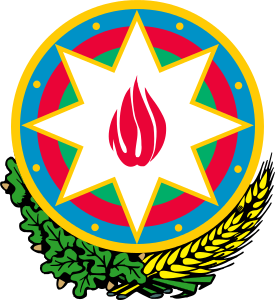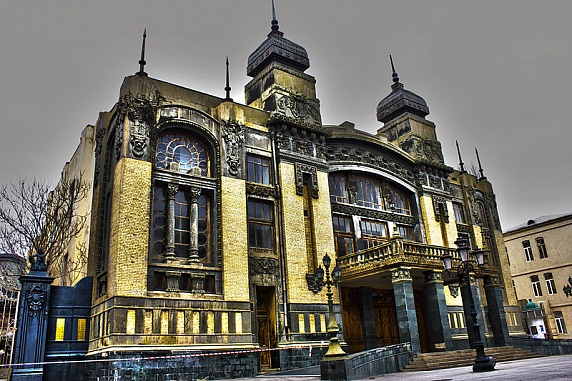 Азербайджанская Республика
Азербайджанская Республика
Transcript of Minister of Foreign Affairs Sergey Lavrov Interview with Azerbaijani Media, Moscow, August 27, 2010
Question: What major questions will be discussed during President of Russia Dmitry Medvedev's upcoming visit to Azerbaijan, what are the current agenda priorities in bilateral relations and what future prospects exist for comprehensive cooperation between Azerbaijan and Russia?
Answer: We consider Azerbaijan as an important strategic partner for Russia in the South Caucasus and the Caspian Sea region. Our relations are on the rise. They are multifaceted, so traditionally the two leaders discuss the full range of these relations when they meet. I'm sure it will be so this time as well. Very good personal relations between the Presidents of Russia and Azerbaijan are an important factor in advancing our partnership.
The main theme of this visit will be the signing of a State Border Treaty, and an Agreement on the Rational Use of Water Resources of the Samur River that goes in one package with this document. Work on these highly important documents has been conducted during the last few years. I don't think I will reveal any great secret when I say that Dmitry Medvedev and Ilham Aliyev have personally contributed in a particular way to it. They substantively examined the principles that made it possible to eventually reach the accord at a meeting last year in Baku that enabled the preparation of a legally binding document.
Certainly, issues of economic cooperation as the foundation of our partnership, occupy a very important place in any summits, during any negotiations. Despite the crisis, which has, of course, affected our trade and economic ties, the situation is improving now. Turnover has begun to climb. There are good investment projects that continue to be successfully realized in industry, transport and banking. I am certain that the Presidents will take a fundamental look at the state of affairs in these areas and will give political impetus to particular sectors of our cooperation if necessary.
On humanitarian ties – a sphere that is really important for ordinary people, the citizens of Russia and Azerbaijan. This year we began a very large new project. In Baku a Forum on Humanitarian Affairs took place. It was decided to make it annual and to hold it under the patronage of the Presidents of our countries.
Baku has a Lomonosov Moscow State University branch operating since last year. A Russian Centre of Science and Culture has opened, along with a House of Russian Books. All of this does, of course, help in the most active way to promote cultural and humanitarian ties, so I am very positive about the prospects for our cooperation. An important factor is the fact that regions of the Russian Federation are increasingly involved in these relations and keep strengthening their ties with the partners from Azerbaijan. Such interaction in all those areas I mentioned is certainly in the interests of our peoples and the interests of bolstering stability in the South Caucasus and the Caspian region. I should add that, apart from bilateral relations, the Presidents will, of course, consider both regional and international problems, the state of our partnership and of our cooperation in international organizations, both in Europe and at the universal level, in particular within the UN.
Question: During President Medvedev's recent visit to Yerevan, a protocol was signed to extend the Interstate Treaty on the Russian Military Base in Armenia. As stated by the President of Russia at a press conference following the official talks, the protocol "aims to maintain peace and security in the South Caucasus and Transcaucasia as a whole." How will this protocol affect the regional military balance and will it not involve a breach of the fundamental principles of the CFE Treaty? In addition, what potential threats does Russia perceive for Armenia in the region and from whom is it going to defend Armenia?
Answer: The protocol you mentioned is about extending the lease on the Russian military base on Armenian territory for 49 years and nothing more. It changes neither the functions of the Russian military base in Armenia nor the number of troops serving there nor the quantity of weapons deployed at the base. Any talk about changes that this protocol could make to the balance of power in the region is therefore entirely groundless and pointless, as is talk of the extension of the current functions and of the current parameters of the Russian military base for 49 years being in breach of any agreement. The main aim of the Russian military base is to secure the interests of the Russian Federation. The range of these interests, of course, includes maintenance of stability in the South Caucasus and the Caspian region. This original goal was put before the Russian military base when the relevant treaty was signed. This goal has not changed with the extension of the treaty for the next 49 years.
Question: For many years now, the Russian Federation has co-chaired the OSCE Minsk Group on Nagorno-Karabakh conflict settlement and is making efforts to resolve this problem, but, unfortunately, there are no visible results so far. What further steps can your country undertake in this direction?
Answer: Perhaps there are no visible results because the work is done in confidential mode. But, as a participant of this work, I can say that, perhaps not visible to the general public, the results do exist. Over the years that Russia has participated in the OSCE Minsk Group together with our American and French partners, over the years that Russia has independently tried in line with the stance of this group to help bring the positions of all sides closer together, a fairly substantial reduction of the contentious issues did occur. The ongoing work on the so-called basic principles has brought some results in terms of finding a language that at this stage can make it possible to fix the parties' consent. That does not mean that with the completion of the work on the basic principles everything will be solved overnight. The sides participate in this work assuming that after the basic principles in any case they will have to prepare a legal document – a peace agreement. Of course, this will require a much greater penetration into the details. Nevertheless, the basic principles as a political document would be very important because they would show the parties being politically focused on reaching an accord. That is what we are trying to facilitate. Russia, as you know, especially on President Medvedev's initiative, has sought over the past couple of years to additionally bring the personal input of our leader into the search for an agreement. Over the past two years, six meetings have been held between the Presidents of Russia, Azerbaijan and Armenia. This year saw two of them – in January in Sochi and in June in St. Petersburg. The result is that although not everything that concerns the draft basic principles has been agreed, on much of the text, however, there is an understanding that we have virtually reached a compromise in language. We have proposed a very simple thing: lay down that two or three questions that are not yet the subject of agreed wording shall require further discussion; then clearly write that without these two questions there will be no final agreement. At this stage this would allow for recording the progress that has been achieved on the bulk of the text, and simultaneously showing that this problem persists and there are two or three specific issues on which to make an extra effort, and in this way solidifying what has been achieved to date. We got the backing of the co-chairs. We expect that such a realistic approach, based on a pragmatic assessment of the current situation, will eventually be supported. At least, we will continue our work. Again, adoption of the basic principles now, along with recording that two or three points so far remain unagreed upon, would send an important political signal, expected in Europe and the wider international community, that the leaders of Armenia and Azerbaijan do aim to resolve the conflict peacefully, as the Co-Chairs have said many times and as is stated in the so-called Meiendorf Declaration signed by the Presidents of Russia, Armenia and Azerbaijan.
I'll note another fundamental question. The Co-Chairs at a meeting on July 17 this year in Almaty on the sidelines of the OSCE ministerial meeting issued a joint statement, noting that so far at this stage, the efforts of the parties have not enabled reaching a result. It is the parties in conflict that should come to an agreement. The Co-Chairs will not be able either singly or the three of them or at the level of ministers or at the level of presidents solve this problem for Armenia and Azerbaijan. Therefore, our stand has always been that we are willing to use our possibilities, our intellectual abilities, to facilitate the search for an agreement. Only the leaders of Armenia and Azerbaijan can find it.
Question: The status of the Caspian Sea is still in limbo – Russia by virtue of the agreements already reached with Azerbaijan and Kazakhstan has slightly reduced its activity. Does this mean that Moscow limits itself to the position of an active onlooker?
Answer: No, not at all. I think this is an incorrect assessment of our position. Indeed, we have reached the agreements with Azerbaijan and Kazakhstan, our Caspian neighbors, on how to divide the bottom. But the water area and the airspace over the territory are not yet divided. This precisely should be the subject of a Convention on the Legal Status of the Caspian Sea that we continue to work actively on. Naturally, we do not exist in a legal vacuum, because so long as there is no convention fixing the Caspian's legal status, in accordance with international law, the Soviet-Iranian treaties of 1921 and 1940 continue to operate. Now, of course, the relevance of signing the Convention is determined primarily by the fact that three new states have been in existence in the Caspian Sea region for almost 20 years. There are currently not two coastal states there but five. Of course, you should seek an agreement that would secure the interests of all Caspian littoral countries. The Convention should do it.
We believe that with all the specific features of the Caspian Sea, it is important to agree as concretely as possible on matters that relate to the use of the Caspian Sea, the protection of its resources, the regulation of navigation and fisheries, the development of mineral resources, and environmental protection. To do it in such a way as not to create problems for this very ecologically fragile water body. What compounds this problem is not that someone is less and someone more active but the fact that some of our neighbors across the Caspian Sea propose to extend national jurisdiction to the coastal zone of such a length that will actually leave no free sea in the Caspian. It's probably too much, because even if we take the world's oceans, the UN Convention on the Law of the Sea provides for territorial waters with a maximum of 12 miles in breadth. The Caspian, however, is not an open sea. It's a closed water body. It should have a special regime which would take this into account, above all, in terms of its rational and careful use. We are willing to compromise, willing to accept the need for a national territorial zone, but, of course, given that freedom of navigation shall not be questioned, as international law actually provides, and that fish can be caught in the Caspian Sea so that the fish stay there, but do not disappear. These are complex issues. Sure enough, their solution requires patience. As to activeness or passivity, I can say that it is on Russia's initiative that we have succeeded after much effort in starting a process chaired by Azerbaijan to prepare Caspian security agreements. We hope that very soon we will be able to complete this work and the Agreement may be signed at the next Caspian summit, which in order of priority is due to be held in Azerbaijan's capital.
Russia's second initiative, of whose relevance we are absolutely convinced, is to create a Caspian Sea Economic Cooperation Organization. Two years ago, the first conference on economic interaction between the Caspian states was held in Astrakhan. We believe that there is every reason for issues of concern to us all, relating to cooperation, trade, transit and many other things, to be dealt with within a structure which will be unburdensome and flexible enough but which will enable conducting discussions in a five-party format on those projects that require such multilateral cooperation. So I am looking forward to progress on Caspian Sea issues as well. This is a very important topic, especially given that many non-Caspian states wouldn't mind availing themselves of the unsettledness of a whole array of legal matters in order to advance their own interests here, not always taking into account the interests of the Caspian states.











